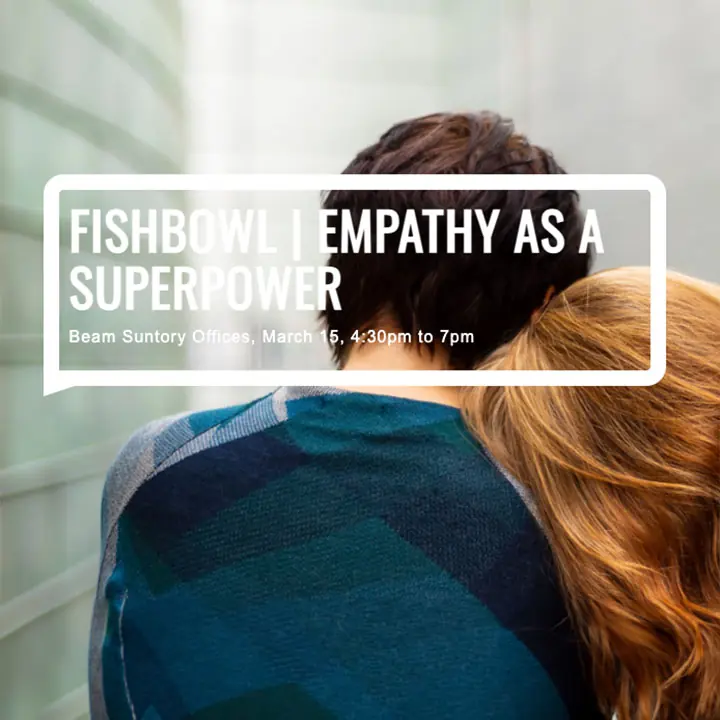Empathy as a SuperPower: Key Highlights from Marketing Society Fishbowl Event


Often the terms sympathy and empathy are mistakenly used interchangeably, despite their vast differences. My time at the Marketing Society’s Empathy as a SuperPower Fishbowl event opened my eyes to the significant difference between the two concepts, why it matters in building a successful, growth-driven organization and the impact empathy can have on our work as marketers.
At the event, the presenters shared an example crafted by professor Brene Brown: Imagine you stumble across a person that had fallen down into a hole and could not get out. A reaction displaying sympathy would be, “Ah, I see you have fallen into a hole.” Versus a reaction displaying empathy would be, “I’ve seen you have fallen into a hole, let me help you out.” Sympathy is merely the recognition of someone in a particular situation, creating a disconnect between individuals, while empathy drives connection through the expression of a much deeper understanding of a person’s situation.
A culture of empathy can be a significant driver in commercial success, but nurturing an empathetic organization comes with challenges. When discussing these challenges during our group discussions throughout the Marketing Society event, the two most prevalent themes were time and proximity, which can both create barriers to building empathy internally within our own teams and externally in our marketing initiatives.
Time Is Money, but Time Is Also Empathy
Internally: It takes time to get to know people, to understand people, and to build truly empathetic interpersonal relationships. And at the end of the day, time is money, so it can often be challenging to dedicate time to forming connections when the outcome or “ROI” of that commitment is not as direct or measurable. Yet, empathy helps create a culture of understanding, passion, and motivation. It fosters an environment where everyone can bring their best selves to work so they can work more efficiently and effectively than they otherwise would, ultimately producing even greater outcomes. That is the ROI of empathy.
Externally: As marketers, it is critical that we empathize with our customers and walk in their shoes so that we can communicate with them in a way that resonates and captures their attention. The moment you lose that empathy, your brand easily gets overlooked or even in the worst-case scenario may be perceived as tone-deaf and out of touch.
Building that empathy with customers takes time. It is a deeply strategic, data- and insight-driven process that cannot be formed overnight. Oftentimes, the most prolonged piece of any marketing initiative is the upfront research and strategy that grounds the work you do and is often the most impactful.
Keeping Empathy in Close Proximity
Internally: Many companies have adjusted to hybrid work environments, creating physical and emotional distance between employees. While boundaries and respect are always important, being able to deeply understand an individual can nurture an empathetic culture and create more efficiency in the workplace. For example here at the Ricciardi Group, our team participated in the CliftonStrengths Strengths Finder Assessment so we could better understand our strengths as individuals. Equipped with these insights, we were able to build deeper empathy for one another, lean into our strengths and create a more effective work environment.
Externally: The closer we can get to our customers, the more empathy we can build, enabling marketers to develop even more tailored experiences. This is the value of customer research, whether it be qualitative interviews, quantitative surveys, user journey analysis, etc. The more direct contact and research we can conduct on our audience, the better we understand them and the closer we can become to being able to really imagine ourselves walking in their shoes. These are the insights that lead to the most effective marketing campaigns.
While building an organization with empathy at the core is challenging and takes valuable time to nurture, it is critical that we as marketers take the lead and serve as those culture carriers. We must develop empathy within our teams and ultimately with our customers by keeping in mind that at the end of the day, every employee and every customer is a real human being. Embracing this approach empowers us to lead the initiatives that will drive real growth for our businesses.
Discover how RG can help your firm leverage the power of empathy to create an even more impactful marketing campaign.
